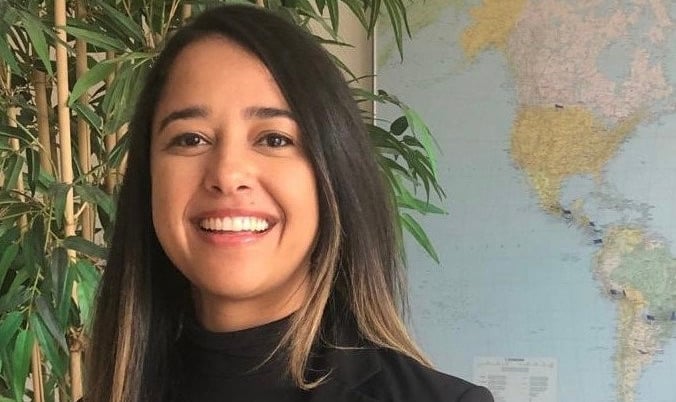If you like strong people that are really into innovation and making a social impact, Taynaah Reis is the one to look at. She is the founder of Moeda, a company that offers digital banking, payments and microloan services using blockchain technology. Moeda aims for more than just a great business model, this company seeks to humanise finance and distribute social impact. And they are (very) well on their way.
Please be informed that we share this story with you because we think it is inspiring for many fintechs. This article is in no way meant as an advertorial, but we do want to share our enthusiasm with you on this business case. This story shows that you can be successful in fintech and make the world a little better at the same time - isn’t that great news?
Meet Taynaah Reis
Taynaah is based in New York City but comes from Brasil. For now, she is doing some research in Dubai, which is very open to innovations when it comes to blockchain and crypto initiatives.
By the way, 'innovation' might be an understatement when we look at what Taynaah achieved with Moeda. She is rapidly making an impact on many people's lives that otherwise would have been excluded from the financial system. Moeda’s services range from launching their own token, to payments, to an impact investment exchange where Moeda customers can invest in Seed Projects. The more the Moeda customers use their MoedaPay account, the more social impact points they'll receive to distribute, donate or purchase discounts. In the end, Moeda makes it possible for their customers to contribute to achieving the United Nations Sustainable Development Goals (SDGs).
Making social impact ánd money
Taynaah calls Moeda a network of technological solutions that stimulate financial inclusion and education. The company started in 2017 with an ICO (Initial Coin Offering). This has been a very interesting way to raise capital, according to Taynaah. Her first investors were mainly young Chinese people who decided to invest in a fintech startup on the other side of the world. Quite a bold decision, but she is still grateful for these first investors' trust in Moeda. And it worked out great. Every day, Moeda is helping people from the rural parts of Brasil to emancipate and improve their lives financially.
Of course, the financial inclusion ambition is admirable, and achieving this with a blockchain solution makes Moeda even more unique. But, this company also seems to have found a profitable and sustainable business model. Moeda is charging fees for banking and exchange services, and it has an impact fund where revenue comes from. So Moeda proves that while doing good for many people, creating a sustainable revenue model is also possible.
Lending doesn't need to be harmful for the poorest
In the financial world, lending does not have an excellent track record for the poorest people. Their economic position often gets crushed by high interest rates, meaning the loan is all but helping people to move forward financially.
Lending to economically challenged people is not a problem with the approach that Taynaah and her team chose for Moeda. The two main pillars of the lending system for the Moeda Seed Projects are financial inclusion and education. Many people that run a Seed Project at Moeda were formerly unbanked or underserved by the financial industry. With Moeda these people get a bank account, but they are also offered a lot of knowledge. Not only about finances, but especially about how to drive their businesses.
One of the charming projects that show how well this works is Cooperval Craft Beer. The idea of this product originated during a workshop with women that wanted to boost their consumer food business. With Moeda and a local brewery, they developed a Seed Project focused on the baru, a traditional chestnut from the region. The chestnuts can be used as a reasonably inexpensive ingredient, and the business model was even valid during the pandemic due to increased demand.
But how does she do it?
The story of Taynaah is impressive, not just because she found a sustainable cause for blockchain technology but also because of her energy. She started programming at the age of twelve and founded her first company at sixteen. From then on, Taynaah just worked her way through the tech world with many different projects ranging from software development for the government to games - and everything in between. Moeda is where all her knowledge, skills and passions come together. And she's following her father's footsteps because he started his own lending projects for financial emancipation years ago in Brasil. Taynaah is driven by the ambition to multiply the impact of her father's projects which gives here a load of energy. She is moving forward on this ambition very fast and has many more plans and ideas to realise.
In 2017, Taynaah was named one of the 12 innovative founders to watch and learn from. We suspect that there lay many fintech adventures ahead for this genuinely inspiring entrepreneur.
financial world, lending does not have an excellent track record for the poorest people.
Please listen to the amazing story of Taynaah, her insights on the fintech world and entrepreneurship in our podcast Fintech Cappuccino:

